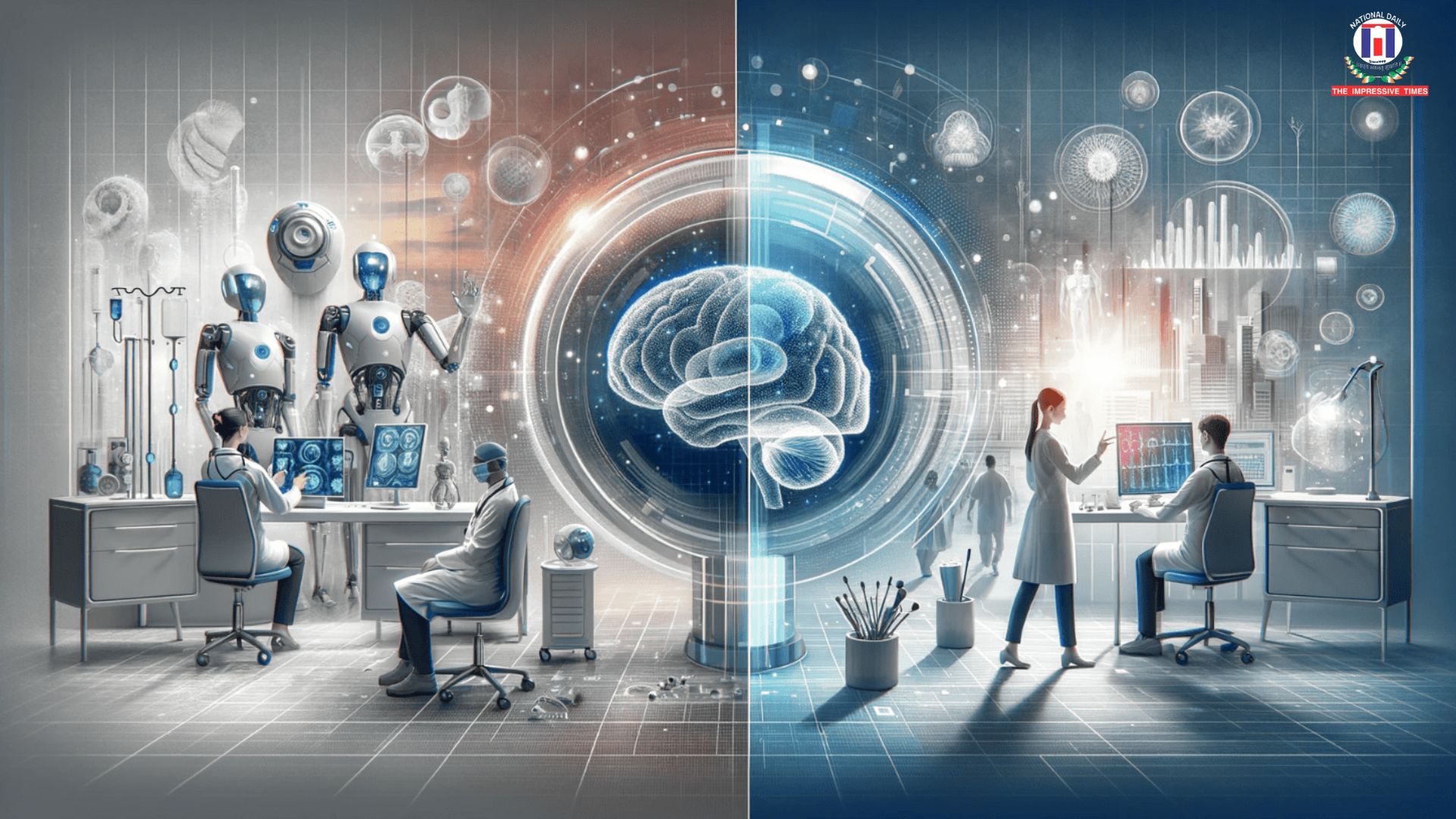
Lifestyle Correspondent
Info@impressivetimes.com
Artificial Intelligence (AI) has made a significant impact in various industries, but perhaps one of the most transformative sectors is healthcare. As we move further into 2025, AI-powered tools and technologies are revolutionizing the way doctors diagnose, treat, and manage diseases, as well as how researchers conduct studies. From personalized treatment plans to advanced diagnostics, AI is enhancing the efficiency and accuracy of healthcare services around the globe.
One of the most exciting advancements in healthcare is the use of AI for diagnostic purposes. With the ability to analyze vast amounts of medical data in seconds, AI is helping doctors diagnose conditions earlier and more accurately than ever before. Machine learning algorithms can analyze medical images, such as X-rays, MRIs, and CT scans, detecting patterns that may be too subtle for the human eye.
For example, AI tools like Google Health’s DeepMind are being used to identify signs of diseases such as cancer, cardiovascular diseases, and eye conditions, often in their earliest stages. This enables doctors to intervene earlier, improving patient outcomes.
AI is also playing a crucial role in drug discovery. Traditionally, developing a new drug takes years of research and testing. With AI, however, researchers can simulate and predict how new molecules will interact with the body, significantly speeding up the process. AI platforms can analyze vast datasets of existing drugs, genetic data, and clinical trials to identify promising drug candidates.
In 2025, several pharmaceutical companies are using AI to streamline the development of treatments for rare diseases, cancer, and neurodegenerative conditions like Alzheimer’s. This technology could lead to the discovery of life-saving medications in a fraction of the time.
One of the most promising aspects of AI in healthcare is its ability to drive the personalization of medicine. By analyzing a patient’s genetic makeup, lifestyle, and environmental factors, AI can help doctors create highly personalized treatment plans that are tailored to the individual. This is especially important for conditions like cancer, where treatments are often more effective when they are customized to the patient’s genetic profile.
AI can also predict how a patient will respond to specific medications, reducing the risk of adverse reactions and improving the overall effectiveness of treatments.
Virtual health assistants, powered by AI, are improving patient access to healthcare, particularly in underserved or rural areas. These AI-driven assistants can provide 24/7 support, helping patients manage chronic conditions, answer medical questions, and offer personalized health recommendations. AI chatbots are increasingly being integrated into hospital systems, allowing patients to book appointments, get medication reminders, and even track their symptoms in real-time.
Babylon Health is an example of a virtual healthcare assistant that offers AI-powered consultations, reducing the burden on healthcare professionals and providing patients with faster, more efficient care.
One of the most promising aspects of AI in healthcare is its potential to improve healthcare delivery in developing countries. By using AI-powered diagnostics, telemedicine, and virtual consultations, people in remote areas can receive quality care without the need to travel long distances to see a specialist. AI is helping to bridge the gap between rural and urban healthcare access, offering a more equitable healthcare experience globally.
As we approach 2025, the integration of AI in healthcare continues to evolve, driving innovation and improving patient outcomes. With AI’s ability to assist in diagnostics, treatment personalization, drug discovery, and healthcare accessibility, it is clear that the future of healthcare is data-driven and patient-centered.
The next few years promise to see even more breakthroughs, and AI will continue to be a driving force behind the future of medicine.













No Comments: